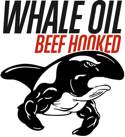Ioana Teitiota, the Kiribati man seeking climate refugee status in order to avoid being deported from New Zealand, has had his case rejected by the Court of Appeal. He and his family will now have to return to the low-lying islands and deal with the worsening impacts of sea level rise. In a powerful Comment Is Free piece for the Guardian, Morgan Godfery looks at the lack of humanity implicit in the court’s ruling:
The decision reveals — in all its misery — the protection deficit in international law. A judicial decision is an uncodified statement of power relations. Never could there be a more unequal power relationship than here: on one side, the I-Kiribati and their sinking home, on the other the rigid machinery of international law. If Lord Diplock is right, then “law is about man’s duty to his neighbour”. That principle should underpin our approach to climate change and forced migration.
He then echoes Naomi Klein’s call for mass action to compel governments to act:
But the law doesn’t encompass all of our moral obligations. It’s clear that the international system isn’t fit for purpose. Let’s look past it to social resistance and political solutions. Science, as Naomi Klein argues, “is telling us to revolt”. Ordinary people need to put pressure on their governments to deal with climate change displacement. The missing link isn’t some new legal rule, but mass action.
As the news about sea level rise gets worse, with bigger rises looking likely to happen sooner than expected, the prospects for the I-Kiribati and many tens of thousands more in the Pacific are becoming ever more gloomy. In that context, New Zealand’s responsibilities to its neighbours is clear. Godfery’s conclusion is compelling:
The social history of the Pacific is one of migration, from the early Austronesian and Polynesian expansions to the recent European settler migration. How can we say no to refugees when we are all migrants ourselves?
Quite so.

 My post at The Daily Blog this week ignores all the political kerfuffle surrounding milk-stained cabinet ministers taking holidays from twitter, and
My post at The Daily Blog this week ignores all the political kerfuffle surrounding milk-stained cabinet ministers taking holidays from twitter, and  New Zealand’s
New Zealand’s